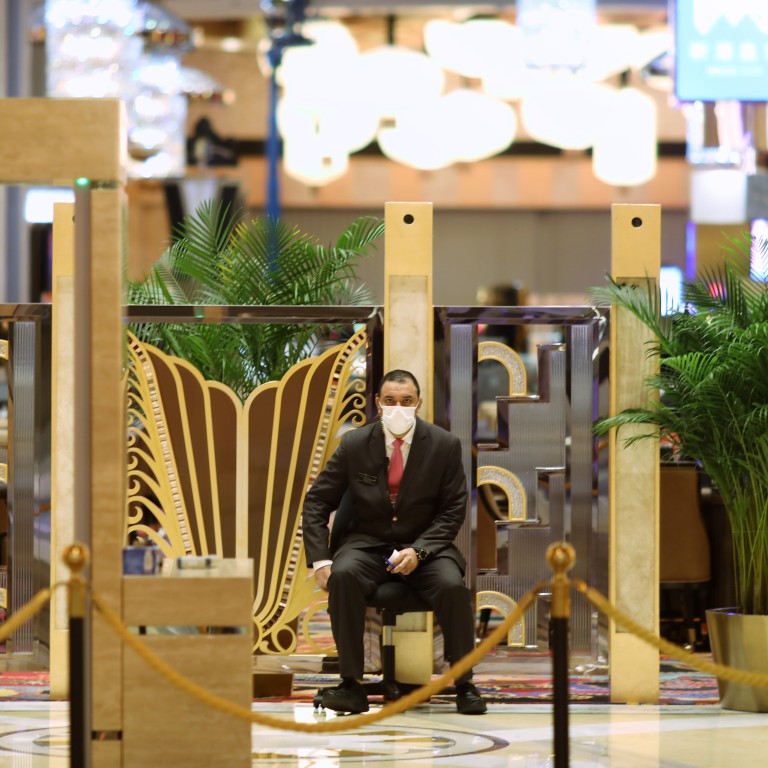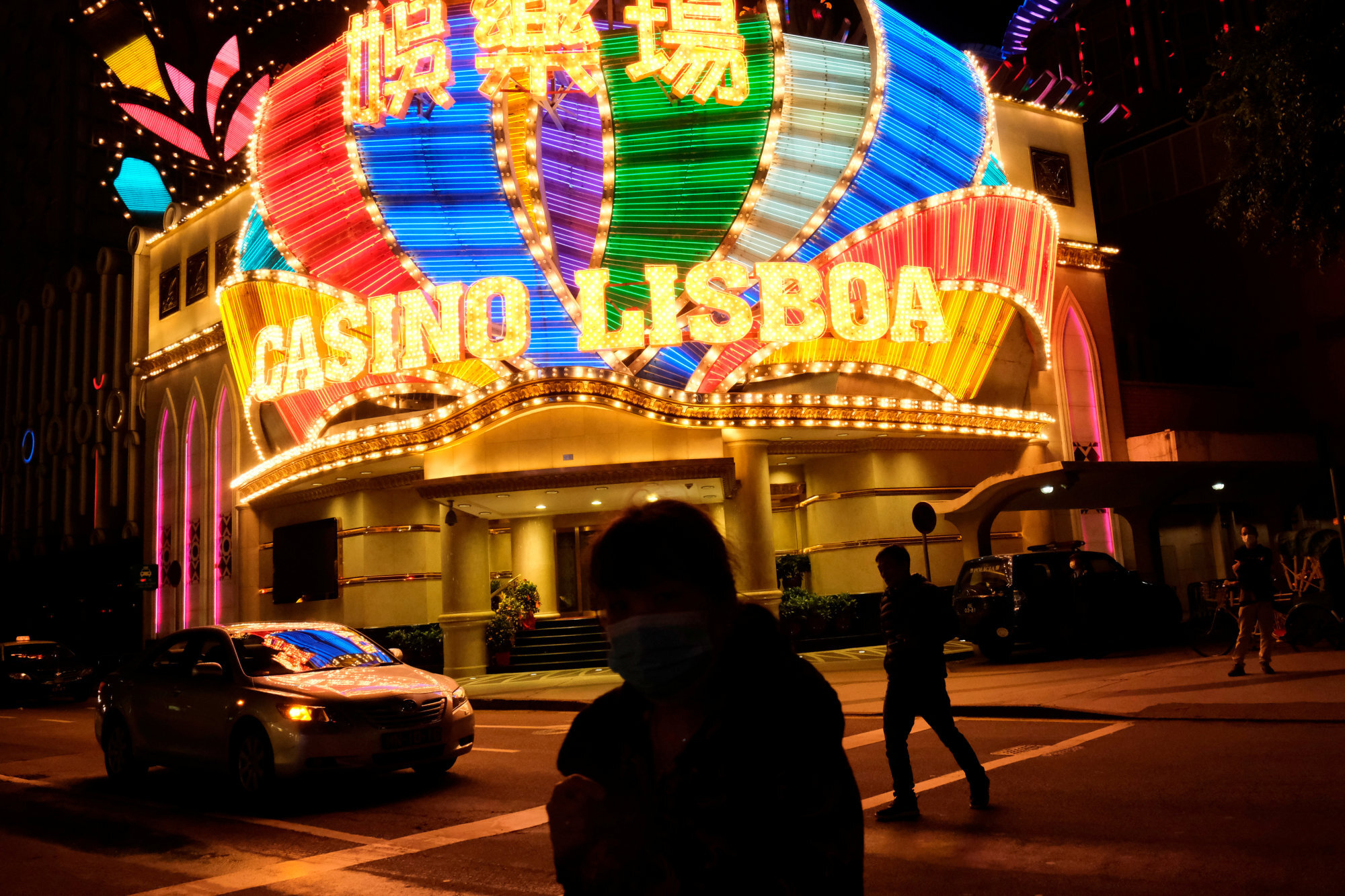
China wants to turn Macau from a casino den into a tech base for the Greater Bay Area
- The tech-themed Beyond Expo saw hundreds of mainland tech investors and executives cross the border to discuss their visions for Macau
- Gambling contributed over half of the city’s US$54 billion GDP pre-pandemic and generated 80 per cent of government tax revenue
China is forging a new identity for Macau, the world’s largest casino den, as a regional technology hub, according to Chinese technology industry executives and officials.
As the former Portuguese colony grapples with Covid-19 and Beijing’s harsh stance on gambling, the Venetian Macao Convention and Exhibition Centre this week hosted a big technology-themed trade fair, with hundreds of mainland tech investors and executives crossing the border to discuss their visions for the city.
The event comes at a time of uncertainty about its pillar industry of gambling, as Beijing is not hiding its displeasure at the role of Macau’s casinos as illicit capital drainage channels that undermine China’s financial stability and capital account controls.
Casinos in Macau remain quiet even though it is easier for mainland Chinese to travel to the city thanks to the quarantine-free border-crossing arrangements. But for attendees of Beyond Expo, the future of Macau lies with research labs and venture capital firms, not gambling tables.
Macau’s gaming operators cut ties with junket king Alvin Chau after his arrest
“The Guangdong-Macau in-depth cooperation zone in Hengqin has created a new opportunity for technology innovation and industry transformation of Macau,” Zhang Yuzhuo, vice-chairman of the China Association for Science and Technology, said in a keynote speech. Zhang was referring to an island between Macau and Zhuhai that Beijing has designated as a special area to be jointly administered by Macau and Guangdong authorities.
“It will supercharge the diversification of Macau’s economy and continuous prosperity,” Zhang said at the event, which was supported by the trade development bureau of China’s Ministry of Commerce, as well as the planning bureau of China’s state-owned assets watchdog.
On the event’s website, Macau’s fresh identity was portrayed as “the new centre of international technologies” to connect the Asia Pacific tech ecosystem with the rest of the world.
Elite Chinese school offers country’s first quantum tech PhD programme
“Macau may have always been known for gambling and tourism, but the pandemic has hit the city hard. Macau has to diversify,” said Lu Gang, director of the Macao Technology General Association, main host of the tech conference. “Although it’s small in size, Macau is an international platform connecting the mainland to the world and can help Chinese companies venture abroad.”
Conference discussions covered a wide range of topics from the metaverse to life science.
The gambling industry contributed over half of the city’s US$54 billion GDP pre-pandemic and generated 80 per cent of the local government’s tax revenue. An 80 per cent drop in gambling revenue last year led to a 50 per cent decline in GDP.
In Beijing’s plan, Macau is being encouraged to develop integrated circuits, new energy projects, and artificial intelligence (AI), among other tech sectors, and to establish a supply chain for chips, from design to testing.
Apart from enhancing the research abilities of Macau universities to drive innovation and technology, Beijing’s road map lists various industries, ranging from Chinese medicine and gems to tourism and financial services, that Macau needs to collaborate with mainland cities on.
For China’s tech firms, the city is also proving a testing ground for new products and solutions.
In one case, Tencent helped the Macau Water Supply Company digitise its operations using WeCom, Tencent’s communications platform for enterprise users, which enabled the water authority to respond faster to consumer requests and streamline the company’s workflow.

Besides the cooperation with Tencent, the water authority deployed an online platform to conduct real-time monitoring of water flow rate and quality as part of the company’s digitisation efforts.
It also installed more than 1,000 smart water meters for residential users, which can automatically detect unusual water consumption and alert the company.
In another development, Chinese telecommunications giant Huawei Technologies Co and Macau’s major telecoms operator CTM announced a deal to work together on Macau’s smart city initiative, powered by Huawei’s 5G, cloud and big data technologies.
Separately, SenseTime said it opened a Macau office to showcase the company’s commitment to the city. The AI company has inked new local partnerships with Kiang Wu Hospital and local conglomerate Nam Kwong (Group), a Chinese state-owned enterprise, both involving smart city projects.

